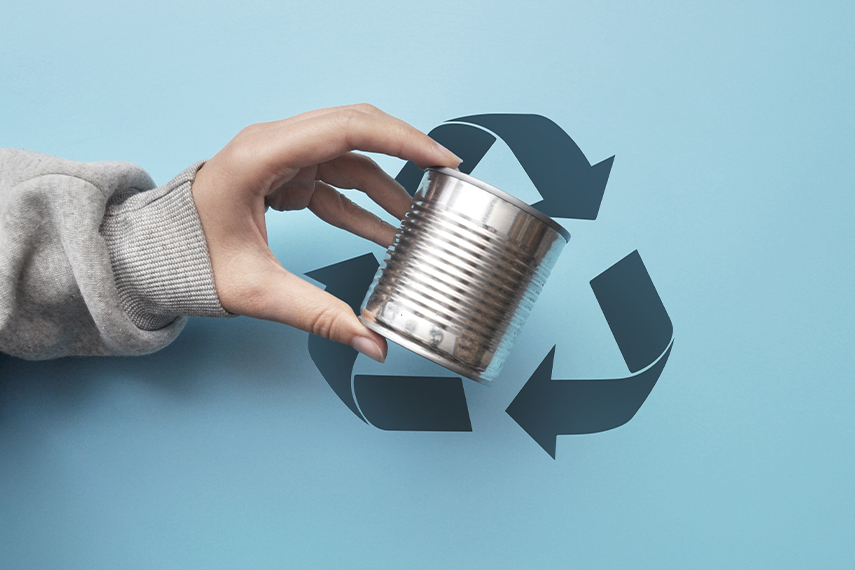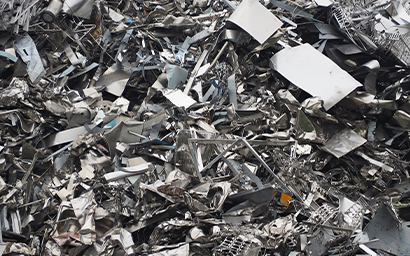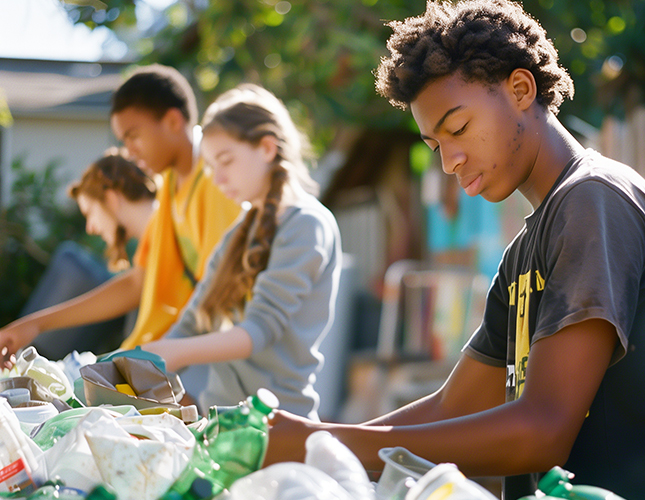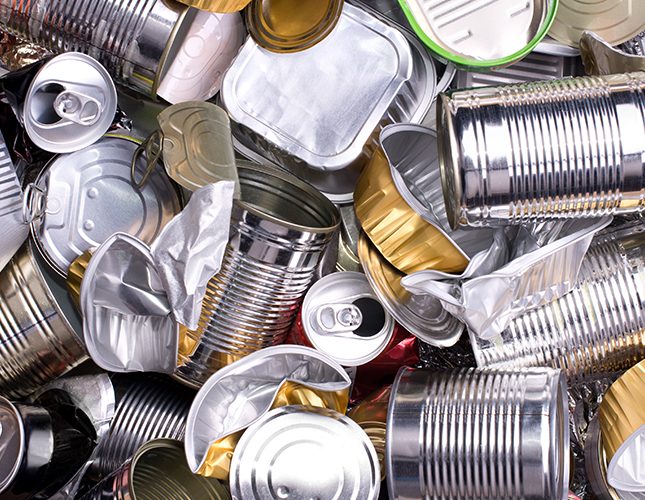Now that you know what happens to recycled plastics, let’s tackle metals!
Metal recycling involves collecting, sorting and treating metal waste to give it a second life and reintroduce it to the market as a raw material. Most Quebec sorting centres are not equipped to accommodate large metal parts, which is why ecocentres or specialized companies generally deal with the upgrading of metals. Small metal materials such as cans, hangers, metal coffee jars or even beer plugs are accepted in all blue bins.
Why recycling metals is important?
Recycling metal is both an environmental and economic necessity. Metal recycling process helps curb extraction of natural raw materials and significantly reduces CO2 emissions to the atmosphere.
Some metals take decades or even centuries to degrade. Abandoned in nature, steel rust and disappear after five to ten years, but releases environmentally damaging materials. On the other hand, aluminium does not completely disappear until after 200 years, even though it is infinitely recyclable!
Generally speaking, making a new product from recycled material generates 20% less emissions than making a new product. Moreover, recycling metals avoids incineration. Thus, you can avoid the significant production of polluting gases in the atmosphere by recycling metals.
- Did you know?
- Abandoned cans take between 100 and 500 years to disappear.
- One tonne of recycled cans is 6.89 tonnes of CO2 that is not generated, or 4 times the average annual emission of a person.

What metals can be recycled?
Virtually all metals can be recycled in ecocentres. Some of them, such as steel or iron, can be unlimited without losing their properties and qualities. Generally, metal recycling is divided into two categories:
- Ferrous metals that include all iron and steel waste
Most of the ferrous metals recovered in Quebec come from the industrial, commercial, and institutional (ICI) sector, and are processed by metal shredders or grinders belonging to specialized companies. You can take them to your local ecocentre.
- Non-ferrous metals that are waste aluminum, lead, copper, zinc, tin or nickel
Aluminum can be recycled endlessly. By recycling it, we can save 95% of the energy needed to produce and cast aluminum. It is a significant source of energy savings.
How are metals recycled?
When they arrive at the processing centre, the metals are sorted and attracted by magnets as they march along the conveyors. Each class of metals will be treated separately. During treatment or recycling, metals are crushed, rolled, and washed.
In steel mills or aluminum smelters, they are then melted, purified, and transformed into raw material. They are ready to be reused.
How recycled metal waste can be used?
Recycled iron can be used to make guards or supports for doors and gates.
Stainless steel is one of the most recyclable metal materials. It can be reused for the manufacture of kitchen utensils.
Aluminum, as an easy-to-treat material, lends itself to many uses after recycling, including the manufacture of new containers and cans.
The Case of Aluminum: How “Green” is Aluminum?
Aluminum is everywhere and its use is increasingly in demand every day of our lives. Think of the famous coffee capsules which, for some companies, are now made of 100% aluminium.
Unlike some metals less present, aluminum exists only in its bound form. In other words, bauxite – which is basically a white, red, or grey rock containing alumina and iron oxide – must first be extracted before it is transformed into the final metal we know. This production process involves environmental problems, including:
- Tropical deforestation during the extraction of bauxite, because this terrestrial mineral is found in depth and most often in large tropical forests.
- The production of toxic red sludge due to the chemical processes involved in extraction.
- Excessive energy consumption for aluminium production, resulting in considerable air pollution.
Let’s summarize: only the metals below go to the blue bin!
- Cans
- Lids and plugs
- Aluminum cans and containers not labelled “Consigné Québec”
- Plates, containers and aluminium foil (whether or not soiled)
- Metal hangers
- Metal coffee pots

Note that these are small items! Large items must be deposited at your local ecocentre.
To find out how to properly dispose of your steel and aluminum containers and packaging in your municipality, always refer to the “Ça va où?” Recyc-Québec.
Do not hesitate to contact us if you have any questions:








